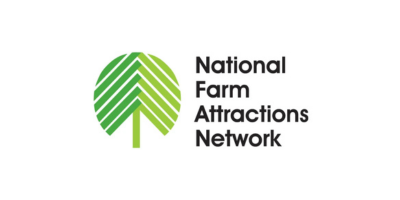From Potatoes to Padel: How One Farmer Turned a Storage Shed into a Profitable Sports Venue
)
When North Yorkshire farmer Callum Stark realised his potato crop wasn’t paying enough to justify the risk and effort, he decided to think differently. Instead of investing in more farming machinery, he transformed one of his potato storage warehouses into a padel tennis facility, and it’s already proving more profitable than the crop that once filled the space.
Operating across 3,000 acres near Sutton-on-the-Forest, Callum continues to farm, but diversification has opened up a whole new income stream. His business, Padel Farm York, is now fully booked, with courts operating daily from 7am to 11pm. “We weren’t getting paid enough really for the potatoes,” Callum explains, “and there wasn’t enough reward for the risk.” Faced with low prices and high uncertainty in arable farming, padel offered a solution that was not only commercially sound but tapped into a growing leisure trend.
Why Padel? The fastest growing sport in Europe
Padel is a racket sport that blends elements of tennis and squash, played on a smaller, enclosed court. It’s designed to be accessible, sociable, and fun, making it ideal for people of all ages and abilities. While there are currently only around 800 courts in the UK, Spain already boasts 33,000 courts, many running at 60% capacity. For Callum, the numbers made sense: “It was just ‘what can I do with the space’ and padel was the fastest growing sport. We’re very lucky as we’re the first indoor courts in the York area.”
By capitalising on demand and offering something unique locally, Callum was able to turn a redundant storage building into a thriving business hub. The decision was also cost-effective, installing two courts cost about the same as buying a destoner machine for potato farming. But unlike machinery, which depreciates immediately, the courts are on track to pay for themselves within a year.
A new revenue model for farms
Callum is quick to point out that he didn’t stop farming, he diversified. And in doing so, he highlighted an important truth: farmers often underestimate the potential of the assets they already own. Redundant sheds, barns, and outbuildings can be repurposed to meet growing demand in leisure, hospitality, retail, or even renewable energy.
“You get to realise what you actually possess on the farm,” Callum says. “You’ve got sheds, you can rent them out for something or do what I’ve done. People love the countryside and farmers don’t realise the potential they have.”
The popularity of padel shows just how powerful it can be to align farm diversification projects with wider lifestyle and leisure trends. By doing so, farmers not only generate reliable secondary income but also engage new audiences with rural spaces in positive, sustainable ways.
The bigger picture: Why diversification matters
Farming has always carried risk, whether from volatile markets, unpredictable weather, or diseases hitting crops and livestock. As Callum puts it: “You need another string to your bow in farming these days.” For him, padel offered a way to de-risk his farm business, provide a service the community was looking for, and create something that would stand the test of time.
At the Farm Business Innovation Show 2025, stories like Callum’s are at the heart of our mission: showcasing how innovative thinking and practical solutions can transform farms into resilient, futureproof businesses. Whether it’s padel courts, glamping pods, event venues, or renewable energy projects, diversification can open up new opportunities and protect your farm against the challenges you can’t control.






